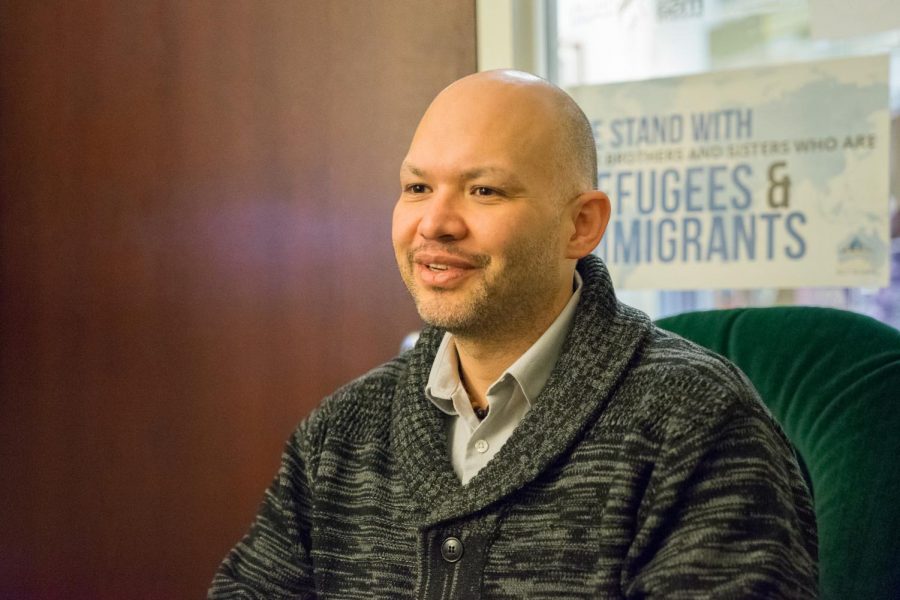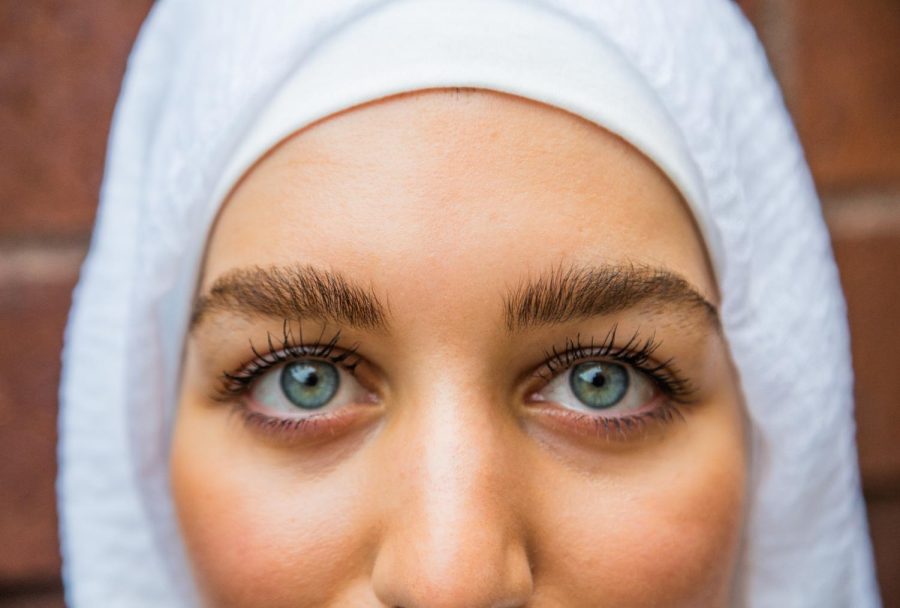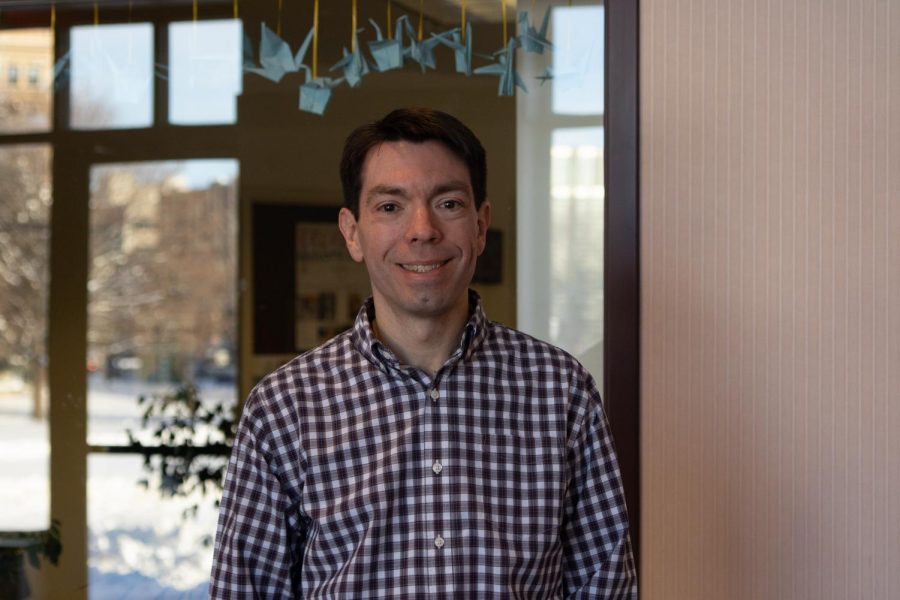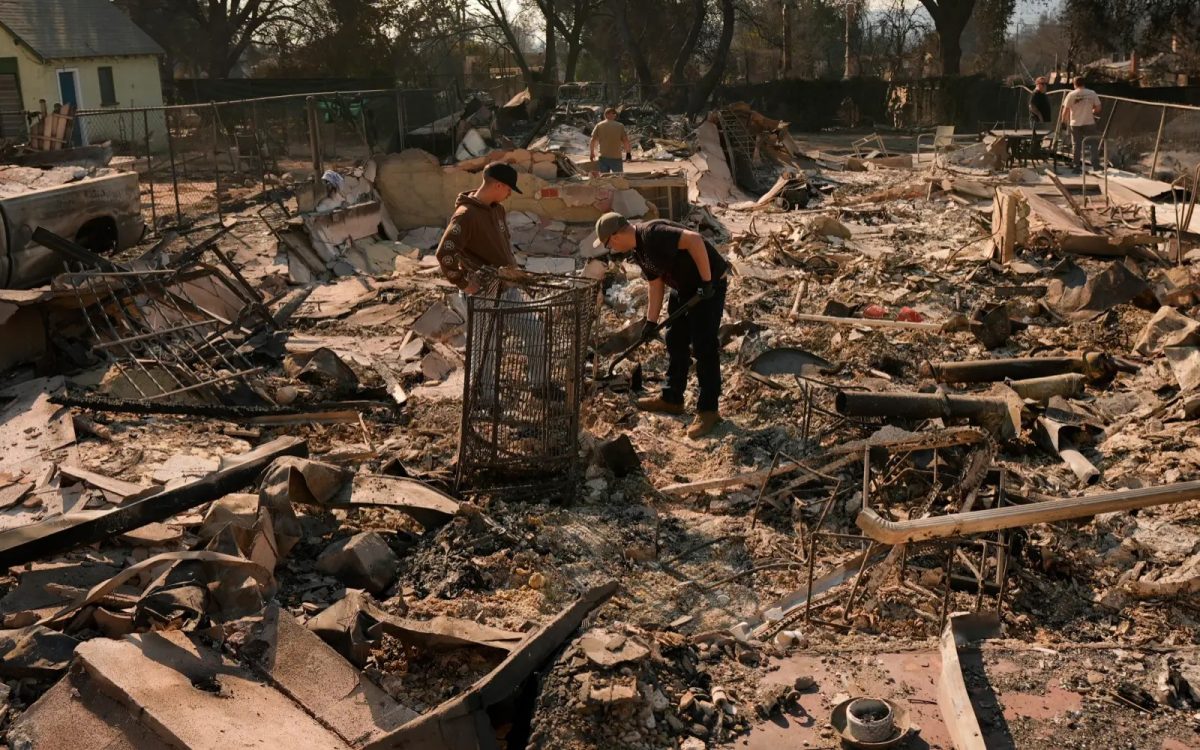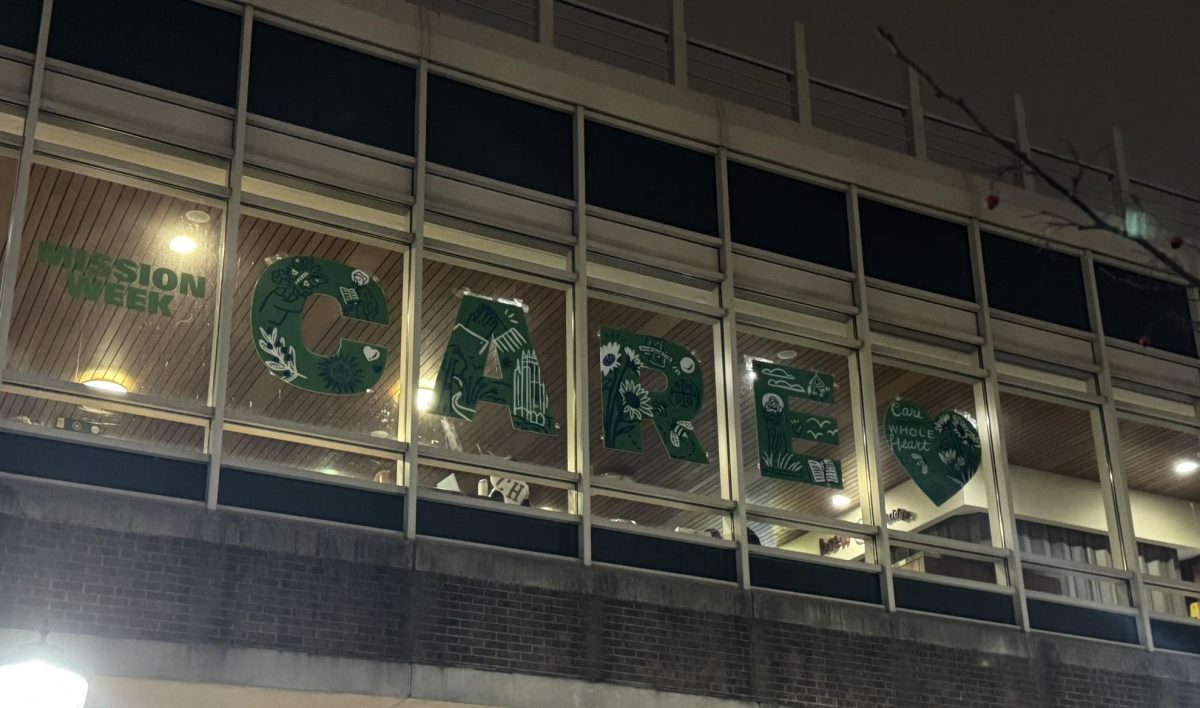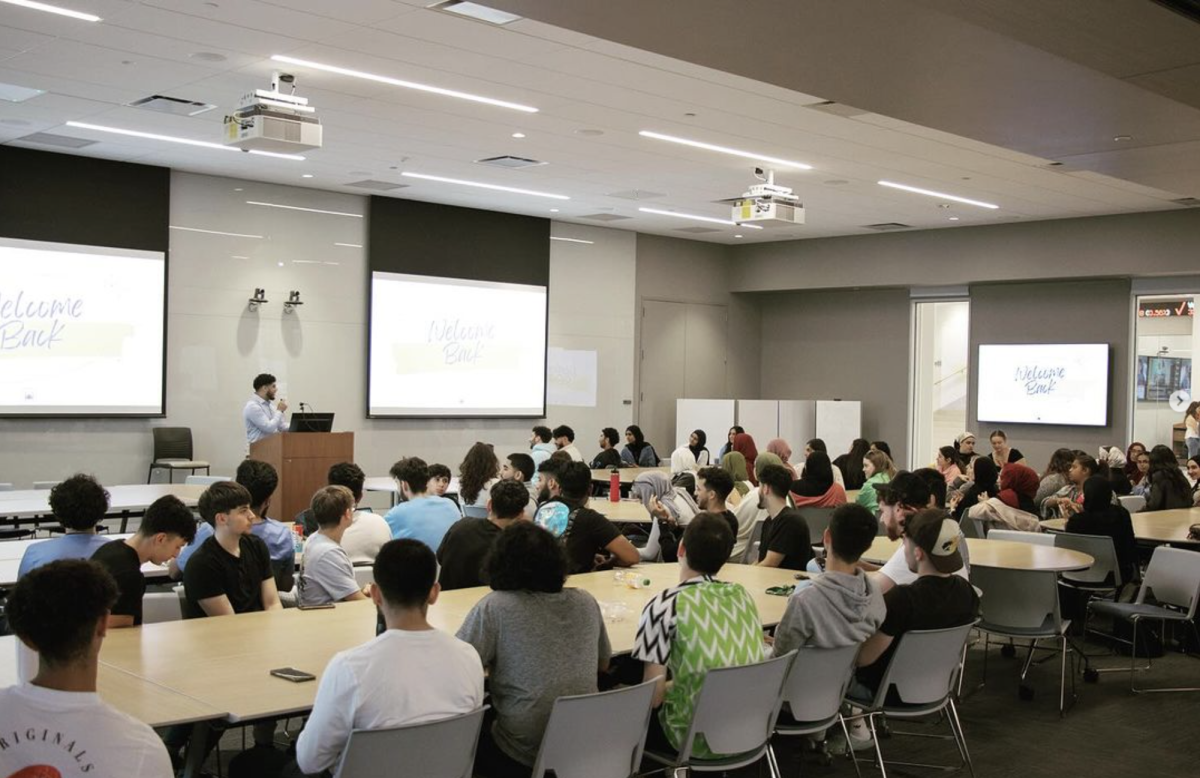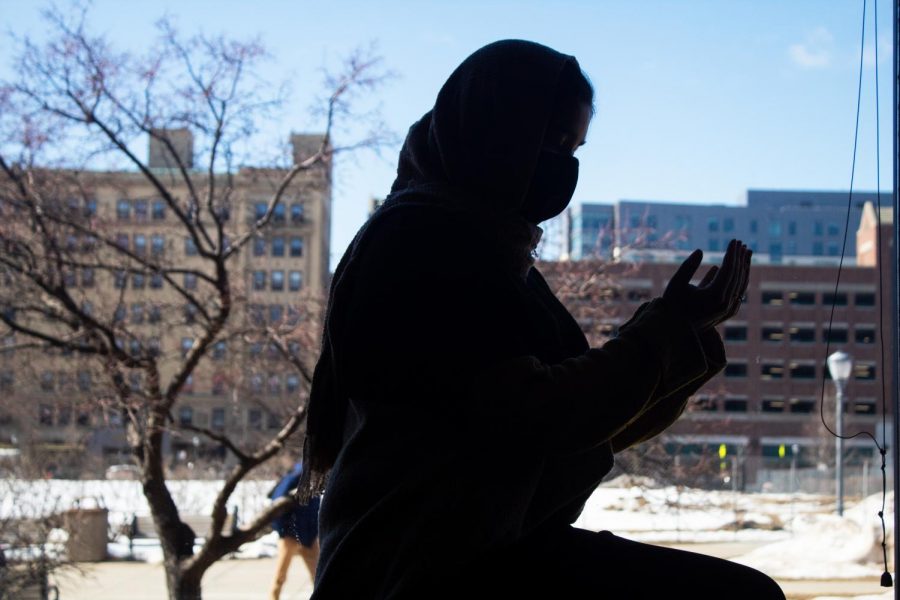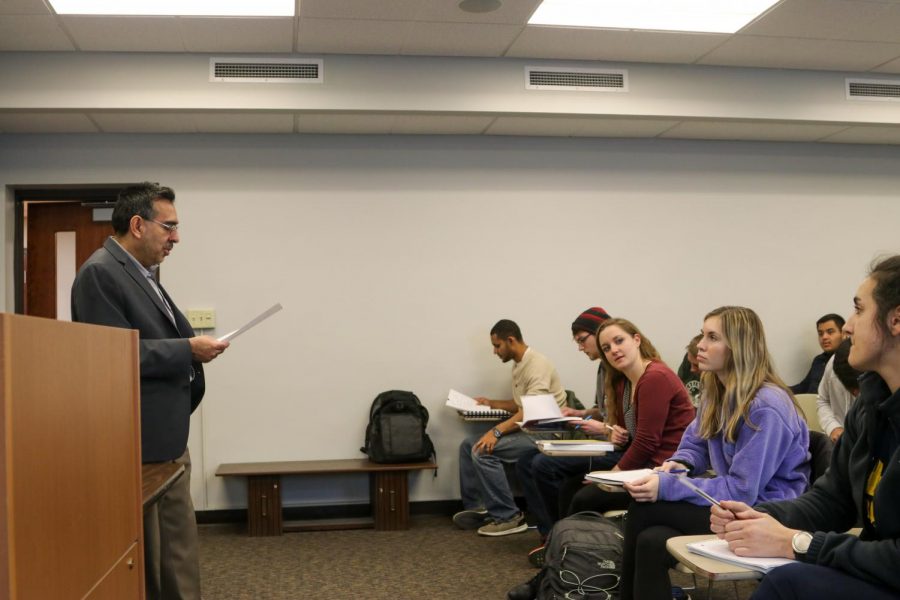One of Campus Ministry’s prospective projects is to put an ablution station, which is mainly used for ritual cleansing in religious contexts, in the Alumni Memorial Union second floor, Campus Ministry director Mary Sue Callan-Farley said.
Bernardo Avila-Borunda, assistant director of Campus Ministry for multicultural student ministry, said an ablution station is used for the ritual called “Wudu” in Islam, which requires washing of the head, mouth, nose, arms and feet before formal prayer and reading scripture.
“To facilitate this process, there are Wudu (or ablution) units that significantly reduce the spilling of water, therefore reducing also risk of slipping, and uncomfortable postures for the people that otherwise would do ablutions over a sink,” Avila-Borunda said in an email.
Avila-Borunda said the Muslim prayer space was on the fourth floor before being moved down to the second floor across from the Campus Ministry office.
Campus Ministry is working to accommodate students of all faiths on Marquette University’s campus, Callan-Farley said.
“Conversations about renovating campus ministry’s AMU sacred spaces, including inclusion of ablution stations, are ongoing,” Callan-Farley said. “Campus Ministry will continue to work toward this end.”
Callan-Farley said requests for capital improvement, in this case the installation of an ablution station in the AMU, are considered among many others across the university.
Avila-Borunda said he thinks putting an ablution station in the AMU would be worthwhile for Muslim students.
“I believe (it) is … worth seeing how can we facilitate the prayer rituals that are already established for them, so that they can fulfill their belief duties and their faith traditions,” Avila-Borunda said. “Even if they are grateful for having the space, part of our belief … (is to) embrace the Jesuit value of the Magis: ‘What is the more that we can do in this situation?’”
Faezh Dalieh, a senior in the College of Arts & Sciences and president of the Muslim Student Association, said students feel a little awkward currently washing their feet in the bathroom sinks.
“We have a good sense of humor about it, but (students are) like, ‘We wish there was at least a little bit more privacy,’” Dalieh said. “It doesn’t even have to be a whole station, but a little bit more privacy.”
Nadia Malik, a junior in the College of Health Sciences and member of MSA, said she thinks putting an ablution station in the AMU is important.
“As Muslims, right before we pray we have to wash ourselves a certain way,” Malik said. “A normal sink is fine, but an ablution station would be a lot easier to do so.”
The Commons has an ablution station located near the multi-faith prayer space on the first floor, which is used by multiple faith groups. This space is not exclusive to Commons residents.
Malik said The Commons’ ablution station is not very accessible.
“It’s kind of an awkward place on campus where not everyone can go to it necessarily, or they don’t even know where it is,” Malik said. “There are graduate students and other non-undergraduate individuals who attend Friday prayers with us. We have to consider these people aren’t familiar with the dorms, and additionally, the Commons is farther from campus, whereas a building like the AMU is more central and a more ideal spot for an ablution station.”
Avila-Borunda said he thinks the university has prioritized other projects over the ablution station. He said this may be due to cost or need for repairs.
Malik said she thinks the delay in the ablution station implementation is offensive to the Muslim community.
“I don’t want to be too critical, but sometimes I feel that Marquette could play the white savior too much and it gets frustrating, especially when we have voiced concerns multiple times,” Malik said. “The fact that we can’t even properly wash ourselves before prayer, which is something the Islamic and Christian faith share, … makes us feel like ‘another’ or the ‘other.’”
Malik said she has not personally talked to anyone about the ablution station, but she said previous MSA presidents and executive board members have voiced their concerns about having an ablution station.
Chris Stolarski, University Spokesperson, said Campus Ministry continues to have ongoing conversations about updating faith spaces on campus.
“The university is committed to respecting and meeting the unique needs of the different faith traditions of our campus community,” Stolarski said in an email.
Malik said it is unfortunate the university is not more sensitive to the needs of Muslim students.
“I think it’s awesome that we have Mass on Tuesdays at Joan of Arc and Mass over here on Sunday at Gesu,” Malik said. “But at the same time, it’s like, ‘Okay, we care about the Catholics, we should also care about Muslims.'”
Avila-Borunda said he believes another factor preventing the ablution station from being built are necessary structural changes, such as redirecting pipes and installing sinks and Wudu units. He also said someone likely would need to make a donation to cover the cost of the ablution station.
Dalieh said MSA does not have the funds to install the ablution station because the organization is small in size.
Avila-Borunda said the ablution station would either go in the room currently functioning as a janitorial closet or in the Campus Ministry closet because it would accommodate the space needed and is near the prayer space in the AMU.
“If they were to go with the first option, the Campus Ministry closet would become a janitorial closet. This would require them to adapt the wall of the Campus Ministry closet to accommodate piping needed to install water required in a janitorial closet. The second option would be similar,” Avila-Berunda said. “They would need to run water pipes from the bathroom to install the ablution units.”
Malik said she would be satisfied using a renovated janitorial closet for ablution.
“The location, or what the old purpose of the room (was) isn’t necessarily the point,” Malik said. “The point is for Marquette to live up to its Jesuit word of being a Jesuit institution, and to provide the proper needs to the Muslim students on campus.”
Zoya Shams, a junior in the College of Health Sciences and member of MSA, said she thinks getting a larger prayer space is more important than putting in an ablution station.
“I know a lot of Muslims have trouble with that here, (but) … I can pray without it,” Shams said. “Every Friday, we have about 25 to 30 people come to prayer and we are cramped when we have to do prayer in the AMU (prayer room).”
Shams said Friday is the largest day of prayer for the Islamic faith.
“Friday prayer is very important for Muslims because Prophet Muhammed, may peace be upon him, has said that Allah has said the best day in the sight of God is Friday,” Malik said. “Fridays are filled with many blessings, and Muslims are to pray and reflect about their Lord as much as possible on Fridays.”
“Every week we get assigned a different space to hold Friday prayer,” Shams said. “I think if we had a bigger space that wasn’t hidden, a lot more people would be aware of the Muslim community.”
Shams said that Friday prayers are held in different AMU rooms and the Henke Lounge. She said when prayer is held in the AMU, they perform Wudu in bathroom sinks.
Dalieh said having a larger prayer space is definitely a goal for Muslim students.
“The size (of the current space) is definitely very small,” Dalieh said. “It used to be okay to hold prayers in (the AMU prayer room), but now that the Muslim population is growing on campus, we can no longer fit everybody in there, which is a good problem to have, but also it kind of sucks that we can’t even use our own prayer room to pray anymore on Fridays because we just can’t fit.”
According to the First Year Student Profile Interactive Report, students of “other world religions” make up 4 percent of first-year students. This percentage has fluctuated in recent years.
Dalieh said having a larger interfaith space in the AMU would allow the university to accommodate multiple groups rather than just the Muslim community on campus.
“They say that they want to be accommodating to all people of all faiths and all backgrounds, and I understand that it’s going to be kind of a challenge to find us a bigger space,” Dalieh said. “But I also think it’s not impossible if they say they want to prioritize students.”

